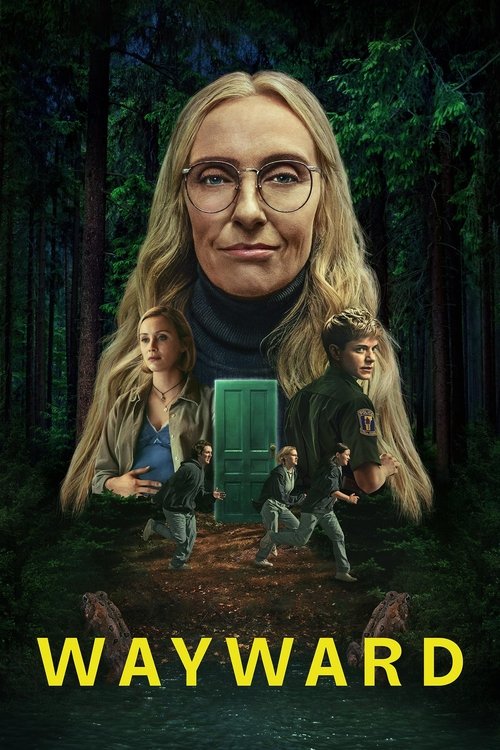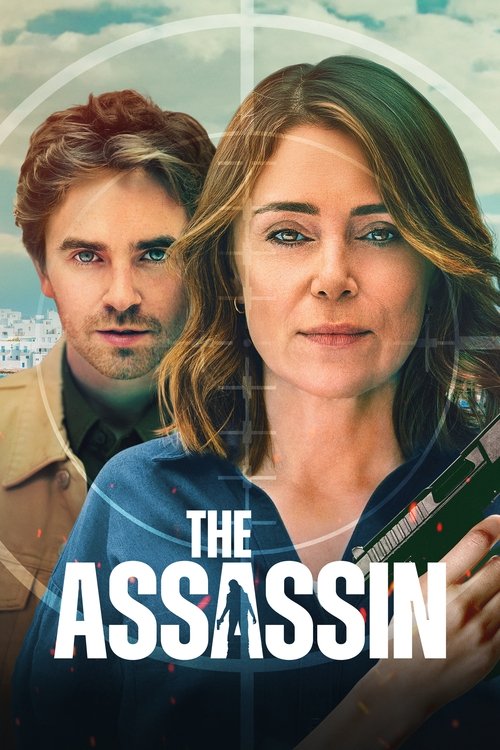
Ask Your Own Question
What is the plot?
The series opens with a tense scene at Leith Park where a young policeman named Anderson conducts a wellness check on a man whose daughter is worried about him. Anderson finds the man stabbed to death and calls for backup. DCI Carl Morck and DI James Hardy arrive. Morck is brusque and critical of Anderson's inexperience, ordering him to check the windows. As Anderson complies, he is suddenly shot dead by a man in black wearing a balaclava. Morck and Hardy are also shot but survive the attack. This violent incident leaves Morck physically and emotionally scarred, with Hardy paralyzed from the waist down.
Four months later, Morck returns to work but struggles with anxiety, sleep problems, and the trauma of the shooting. He is forced to attend therapy sessions, which he resists. His superior, Detective Chief Superintendent Moira Jacobson, assigns him to lead a newly created cold case unit called Department Q, intended to improve the police department's public image. Morck is initially reluctant but insists on having an assistant. Moira assigns Akram Salim, a civilian IT worker with a mysterious past in Syria and sharp investigative skills, to assist him. Akram selects the cold case of Merritt Lingard, a ruthless and successful prosecutor who disappeared four years earlier while traveling on a ferry to the remote Scottish Highlands.
Morck, Akram, and Detective Constable Rose begin investigating Merritt's disappearance. They visit William, Merritt's disabled brother, at a care facility but are denied access by the director, Dr. Fiona Wallace. They interview Claire, a family acquaintance, who explains that William's disability stems from a severe head injury and insists Merritt would never have abandoned her brother willingly. Morck confides in his friend James about the case. Meanwhile, Merritt's former supervisor, Lord Advocate Stephen Burns, approaches Morck. Morck is pressured by Moira to make a public statement about the case, which triggers a panic attack. During this time, William escapes from the care facility and runs into the forest, adding urgency to the investigation.
Morck juggles his personal life, dealing with his stepson Jasper's truancy and making an awkward advance toward his therapist Rachel. Akram presents the Merritt Lingard case to Moira as Department Q's first official assignment. Morck and Akram speak with Fergus Dunbar, the detective who originally handled Merritt's disappearance, uncovering that the initial investigation was abandoned without resolution. They continue to pursue leads, piecing together Merritt's last known movements and the circumstances surrounding her disappearance.
As the investigation progresses, Department Q uncovers that Merritt was kidnapped and held hostage by Ailsa Jennings, the mother of Harry, and his younger brother Lyle. This revelation comes after a major breakthrough in episode 8, which propels Morck and his team into a tense chase to rescue Merritt before it is too late. The team's efforts culminate in a confrontation where they manage to save Merritt from captivity, ending her four-year disappearance.
Following Merritt's rescue, she visits the police station to thank Moira for reopening the investigation and expresses a desire to meet Carl Morck, though she has not yet done so. Moira informs her that Carl is taking an indefinite leave from work. Merritt plans to return to Mhòr to reunite with her brother William and their estranged father. Carl surprises Lord Advocate Stephen Burns by requesting that Akram be officially allowed to become a police detective, promising to keep Stephen's involvement in witness tampering confidential. The season closes with Merritt entering the empty Department Q basement and nearly encountering Carl, who remains incognito. Carl is then shown returning to work, carrying a box of cold case files to his desk, joined by Akram, Rose, and Hardy, signaling the continuation of Department Q's work.
Throughout the season, Morck struggles with PTSD and the aftermath of the shooting, while building a team of misfits to tackle cold cases. The series balances the procedural investigation of Merritt Lingard's disappearance with Morck's personal challenges and the dynamics within the newly formed Department Q.
What is the ending?
At the end of Dept. Q Season 1 (2025), detective Carl Morck and his team finally locate Merritt Lingard, who had been kidnapped and held captive for over four years by Ailsa Jennings, the mother of Harry Jennings, and Harry's younger brother, Lyle. Merritt is rescued and returns to normal life, while Carl takes time off work but later returns to Dept. Q with his team, including Akram, Rose, and Hardy, who has begun walking again after being paralyzed. The unresolved Leith Park shooting case remains open, setting up future investigations.
The ending unfolds as follows:
The investigation by Carl Morck and his cold case team intensifies as they close in on Merritt Lingard's location. They discover that Merritt was kidnapped by Ailsa Jennings and Lyle Jennings. Lyle, who had been abused by his mother and kept in a hyperbaric chamber as punishment, impersonated a man named Sam Haig to manipulate Merritt. The real Sam Haig was a reporter and climber unrelated to the kidnappings. This revelation comes after the team uncovers that the man Merritt had a relationship with was actually Lyle in disguise.
The team travels to the island of Mhòr, where Merritt was held captive in a hyperbaric chamber for over four years. They manage to rescue her, ending her long ordeal. Merritt expresses gratitude to the police, particularly to Carl's boss Moira, for reopening the investigation. She reveals plans to reconnect with her brother William and estranged father, signaling her attempt to rebuild her life.
Meanwhile, Carl returns home to a warm welcome from his stepson Jasper, lodger Martin, and therapist Rachel, who leaves him a gift. Three months after Merritt's rescue, she visits the police station to thank the department but has not yet met Carl in person. Carl, meanwhile, surprises Merritt's boss, Lord Advocate Stephen Burns, by advocating for Akram, a refugee, to become a police detective. Carl promises to keep Stephen's involvement in witness tampering confidential in exchange.
In the final scenes, Merritt visits the Dept. Q basement but finds it empty. She nearly encounters Carl but does not realize it is him. Carl is then shown returning to work, carrying a box of cold case files to his desk, joined by Akram, Rose, and Hardy. Hardy, who was paralyzed earlier in the season due to the Leith Park shooting, has begun walking again, symbolizing recovery and hope.
The unresolved Leith Park shooting case, which left Carl injured and Hardy paralyzed, remains open, with Hardy assigned to investigate it further. This sets the stage for future seasons.
In summary, Merritt is rescued and begins to rebuild her life; Carl takes a brief leave but returns to lead Dept. Q with his team; Hardy recovers partially and continues working; and the Leith Park shooting remains an open mystery.
Is there a post-credit scene?
Based on available sources, there is no evidence of a post-credit scene in Dept. Q, Season 1 (2025). The finale's narrative concludes with a three-month time jump: Merritt, now rescued, visits the police station to thank those who saved her, but she and Carl Morck narrowly miss each other in a deliberately understated, emotionally ambiguous moment--Carl returns to work with Akram, Rose, and James, while Merritt leaves without recognizing him. The show's creators intentionally avoid sentimentality, leaving the audience with a sense of unresolved connection rather than a traditional, cathartic reunion.
After this, the credits roll. No additional scenes, stings, or narrative beats are described as occurring after the credits in any official recaps, reviews, or episode guides. The emotional weight and thematic closure are delivered within the main body of the episode, and the story does not continue into a post-credit sequence.
What triggers DCI Carl Morck's panic attack in Season 1 of Dept. Q?
Carl Morck suffers a panic attack after being forced by his boss Moira Jacobson to deliver a statement about the Merritt Lingard case to a press conference, which causes him significant distress.
How does William, Merritt Lingard's brother, react to the press conference statement in Season 1?
After watching the statement on TV, William escapes from the care facility where he is held and runs away into the forest, showing his distress and desire to avoid the situation.
What is the relationship dynamic between Carl Morck and his therapist Rachel Irving in Season 1?
Carl makes an embarrassing pass at Rachel during their therapy session, indicating a complicated and awkward dynamic between them.
Who assists Carl Morck in investigating the Merritt Lingard cold case in Season 1?
Carl is assisted by Akram Salim, a civilian with a mysterious past and sharp investigative skills, and also receives expertise from his former partner DI James Hardy.
What challenges does Carl face when trying to access William at the care facility in Season 1?
Carl and Akram visit William's care facility but are refused access by the director, Dr. Fiona Wallace, who insists on protecting William and denies that Merritt would have abandoned her brother willingly.
Is this family friendly?
The TV show Dept. Q, Season 1 (2025), is not family friendly and is rated TV-MA due to mature content. It contains severe violence and gore, including graphic scenes with blood, shootings, and a dead body with a knife in the head. There are also moderate frightening and intense scenes related to crime and trauma.
Regarding sexual content, there is mild sex and nudity, including brief full nudity of both male and female characters, visible female breasts, and scenes implying sexual activity. Some dialogue includes disturbing references to sexual abuse. Profanity is severe, and there is mild use of alcohol and drugs.
Potentially objectionable or upsetting aspects for children or sensitive viewers include:
- Graphic violence with blood and shootings
- Scenes of death and injury
- Sexual nudity and implied sexual activity
- Disturbing sexual references and themes
- Strong language and mature themes related to crime and trauma
These elements make the show unsuitable for children and sensitive audiences.






























